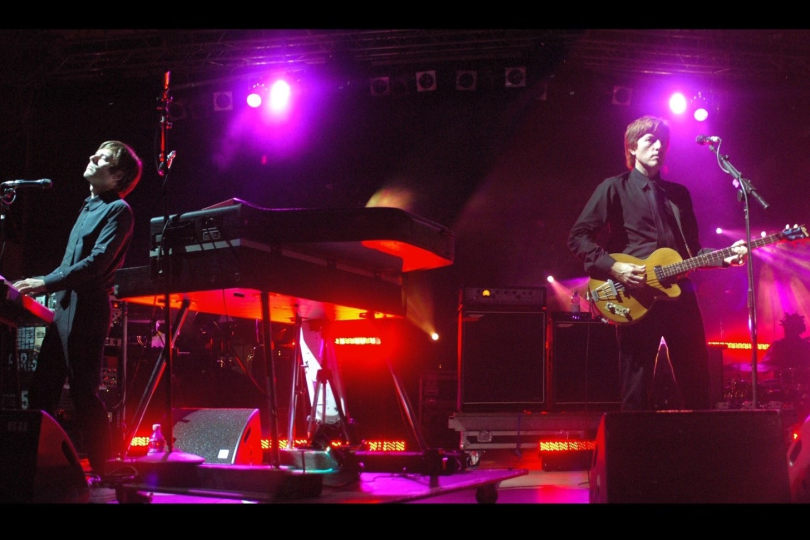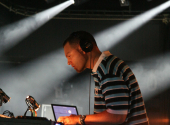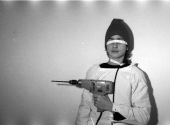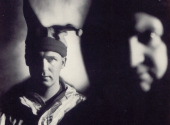
Milestones in Music History #38: Air, A Dive Into Our Dreams
Our previous episode saw us explore the meanders of David Studdert's mind and his Tactics. Music, as we have seen, can reflect the feelings of the mind, but more than that, music is one of the most authentic forms of intellectual expression. However, when we speak of the mind, we are treading on very special ground, where reality and dreams are indistinguishable and intertwine in the complexity of our heads. Something very difficult to describe, but which someone has managed to do properly. It's time to talk about the ethereal Air.
Electronic music at the dawn of the 1990s took on colourful contours, dictated by changes in society and the needs of the new generations. On one hand, the techno phenomenon exploded, perpetrated through acid house and also by artists such as FSOL, as we saw a few episodes ago. On the other hand, a more delicate side of electronic music developed, which related to the softer and more sensitive part of the human soul, but was no less bombastic and incisive.
The calm frequencies and gentle synths did not come to replace house, techno or hardcore music, but became a complementary part of it, as the two elements were not only independent and coexistent but also an expression of the human soul and its countless facets. And human nature also needed to be expressed, at times, in darker, softer tones that would enhance the depth and the contradictions of the human being.
In this sense, the electronic revolution began in the mid-1990s in Versailles, France. And it was there that Nicolas Godin and Jean-Benoît Dunckel met. Godin studied architecture at the École nationale supérieure d'architecture de Versailles, while Dunckle studied mathematics. In 1995, the two decided to form a band.
It was not the first time they had played together, as they had both previously played in the band Orange. To tell the truth, however, Godin had embarked on his musical career alone, working on a demo with members from Funkadelic, before releasing his first solo single "Modular Mix", composed in collaboration with French electronic music producer and DJ Étienne de Crécy.
The history of the duo's name, Air, was curious. In a clip aired in 2022 by BBC, Godin stated that Air is an acronym, standing for "amour, imagination, and rêve," and Dunckel seemed to support that claim, saying "...which means 'love, imagination, and dreaming'." But in a 2008 online article, Godin seemed to dispel this myth, saying the acronym was made up, but it would be a cool idea he wished he had.
The duo began their adventure by making remixes for other musical acts, and finally in 1995 they recorded their first EP, entitled Premiers Symptômes, which saw the light of day at the end of July 1997. The EP collected singles issued between 1995 and 1997 and gave a first glimpse into the genius and avant-gardism of the two musicians.
Premiers Symptômes consisted of five tracks: the opening track was Godin's "Modular Mix", revisited and enriched, followed by the floating chill-out piece "Casanova 70"; followed by "Les professionnels" a mental journey that recalls jazz sounds and Brian Eno-esque ambient compositions; "J'ai dormi sous l'eau" ("I Slept Under Water"), a downtempo mind trip; and finally the wonderful "Le soleil est près de moi" ("The Sun Is Close to Me").
Godin himself declared that "Le soleil est près de moi" was the best piece they had ever made. It was conceived long before the Air project happened, in his bedroom, and it was born from a natural feeling, that could not be expressed in words: the longing for the sun on a cold winter day. All this, however, even a little to the detriment of the neighbours, who used to complain about the noise coming from his Fender Rhodes.
Meanwhile, the duo began work on their debut album, which came out in January 1998, the spectacular Moon Safari. It received critical acclaim, becoming one of the most influential electronic music albums of the 1990s. The debut single from the album was the jaw-dropping space rock/dream pop "Sexy Boy", vividly described by the Sunday Mirror (which gave it a 10 out of 10) as something that "sounds like Kraftwerk meeting Daft Punk and going for a picnic with Aqua."
On the album, we find the most diverse genres: ambient, electronic pop, trip-hop, chill-out, downtempo, space rock and space pop. Other notably successful pieces were "Kelly Watch the Stars", the album's second single, which was a rather electronic pop composition, and "All I Need", where Dunckel also made use, apart from the above-mentioned Fender Rhodes, of three other synths and the Wurlitzer electric piano. The whole song was accompanied by the sensual and dreamy voice of the American singer-songwriter Beth Hirsch.
The following year, the band worked on the soundtrack of Sofia Coppola's debut film The Virgin Suicides, the story of which was inspired by Jeffrey Eugenides' 1993 book of the same name and which Sofia Coppola had read in 1995 on the advice of Thurston Moore. The homonymous album was released under the same name the following year, in February 2000.
The duo was quite prolific, and the following year released their second album, 10 000 Hz Legend, a more experimental and electronic-oriented record. Air also collaborated with other artists, such as Beck (in "The Vagabond") and suGar Yoshinaga of Buffalo Daughter (in "Sex Born Poison"); however, the album was not received as positively by critics as the previous one.
The great success and milestone in the career of the two Frenchmen came in 2004 when the band released their most important and sublime work, the album Talkie Walkie. A complete and varied record, harmonious, marking a turning point in electronic music, to the softer and more immersive kind. It is an album to be listened to in one sitting, and repeatedly, as one gets different impressions with each listen.
The first single from the album was the mesmerizing "Cherry Blossom Girl", sung by Dunckel; here the band employed guitars, drum machines and the bowed vibraphone (which can be heard in the opening), to which flute and synths were later added. Truly a masterpiece.
A song that I have always loved is the third track and the album's second single, "Surfing on a Rocket", on which the singer-songwriter and lead singer of Big Sir Lisa Papineau collaborated with some vocal parts. But other tracks like "Alpha Beta Gaga" (featuring the shamisen, a three-stringed traditional Japanese instrument), "Venus", "Run" and "Alone in Kyoto" will forever remain in history.
The band released two more albums, Pocket Symphony in 2007 and Love 2 in 2009. In 2012, Air released a concept album inspired by Georges Méliès' 1902 silent science fiction film Le Voyage Dans La Lune, a dreamlike journey into cinematic surrealism, no longer silent but accompanied by the band's transporting melodies.
However, Talkie Walkie had already written history. Few musical acts in the history of music succeeded in interpreting the gentleness and complexness of the soul like Air. They were able to break through the boundary between dream and reality, combining ingenious sound melodies with profound lyrics while making use of literary and cinematic references.
Their contribution to the world of downtempo and chill-out electronica was immense. Another group with a similar approach, albeit with different intentions and influences, was one of the most interesting and innovative bands on the electronic and psychedelic scene coming from Europe – or to be exact, Norway. Our next episode will see us deal with the vicissitudes of Motorpsycho, the protagonist of our next episode of Milestones.
What is the definition of a dream? Are there musical instruments particularly suitable for creating surreal atmospheres? How can multiple genres be combined without being chaotic? What is the evolution of dream pop and space rock today?
Leave your opinion in the comments below!
If you have found an error or typo in the article, please let us know by e-mail info@insounder.org.





